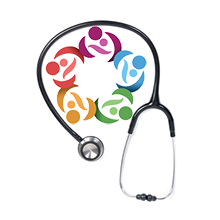Postpartum Recovery for Physicians
Postpartum recovery and its effects on lactation
As a lactation care provider, you encounter clients at a unique time in their lives--the postpartum period. Whether you are seeing a client moments, days, weeks, or even months after their birth, they are still recovering physically and psychologically. That recovery--whether it proceeds normally or involves complications--directly impacts lactation.
This course covers normal postpartum recovery as well as common complications across three time periods: peripartum and the first two weeks; two to six weeks; and six to 12 weeks.
Instructor Alison Ward-Moore, MD, IBCLC, offers an information-packed class, clearly describing what is happening in the body at each stage as well as common emotional and psychological experiences.
From recovery and complications in the early days (perineal lacerations, C-section incisions, PIH, retained placenta, hemorrhage, and more) all the way through return to work, exercise, and weight loss considerations a few months out, Ward-Moore walks the learner through what a parent’s body and mind experience after birth, all with a focus on the effects on lactation and the lactation care provider’s role.
This course covers a lot of ground. Ward-Moore teaches you to see the whole picture, understanding how birth and postpartum events (both typical and complex) inform the lactation challenge you’re seeing today. Provides information you’ll refer to again and again.
- 2.5 Nursing Contact Hours(through December 8, 2027)
- 2.5 CMEs
- 2.5 L-CERPs (through December 31, 2027)
Lactation Education Resources has been accepted by the International Board of Lactation Consultant Examiners® (IBLCE®) as a Preferred Provider for the listed Continuing Education Recognition Points (CERPs) programme. Determination of CERPs eligibility or CERPs Provider status does not imply IBLCE’s endorsement or assessment of education quality. As a Preferred Provider, Lactation Education Resources attests that it complies with the WHO Code and subsequent WHA resolutions.
Price: $36.00


